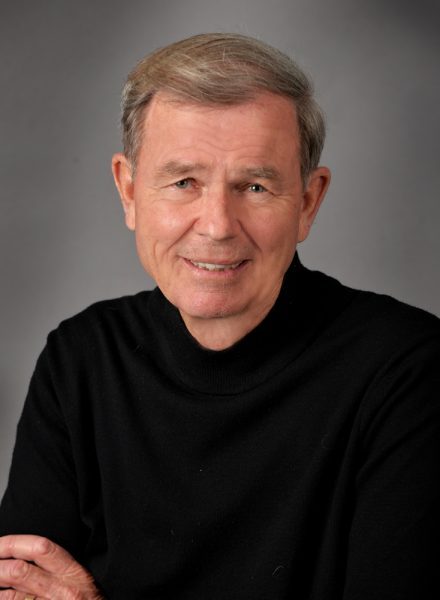
The Power of Faith
I haven’t before mentioned my service in World War II. All of two months old on Pearl Harbor Day, I soldiered through the war with everyone else, even learning to walk and talk. My clearest memory came at the end when I asked, “Mommy, why are all the cars honking their horns?” “They’re happy because we won the war,” she replied.
Unfortunately, the Cold War followed—a time of international tension punctuated by outbursts of violence. At the core, it was an economic argument over Marx’s claim to have discovered the “engine of history” that the “workers of the world” would inevitably revolt and “throw off their chains.” The Cold War’s bookends were Winston Churchill’s 1946 “Iron Curtain” speech and the 1989 fall of the Berlin Wall. The conclusion of this forty-three-year struggle, turning Marx’s words, was fittingly written on an East Berlin factory wall: “To the workers of the world: I’m sorry.” (Credit to John Lewis Gaddis in “The Cold War, A New History.”)
This week marks the 40th anniversary of Pope John Paul II’s 1983 pilgrimage to his native Poland as that nation languished under martial law. It’s important because though the Cold War was marked by an arms race of unbounded cost and lethality, it ended with a whimper, decided not by forces at arms but by the universal moral force of everyday people, for which the leader of the world’s largest church was one face. History offers no precedent for such a peaceable victory won by moral force.
The 1983 pilgrimage wasn’t the Pope’s first to his native Poland. In 1979 growing crowds estimated in the millions flocked to hear his message of faith, hope, and love. The visit culminated at his home city of Krakow, where he urged, “You must be strong, dear brothers and sisters . . . with the strength of faith . . . the strength of hope . . . [and] love, which is stronger than death . . . There is, therefore, no need to fear.”
There were other voices. President Reagan, at Brandenburg Gate, against the advice of timid advisors, famously challenged, “Mr. Gorbachev, tear down this wall.” In Britain, Margaret Thatcher pushed for individual self-reliance, noting: “The problem with socialism is you eventually run out of other people’s money.” Even in China, Deng Xiaoping moved away from socialism, building on lessons from the success of post-war Japan to lay the foundation for today’s economic success.
The fundamental lesson of Cold War history is now clear: The reversal of what seemed the unstoppable advance of communism can be credited simply to its rejection by those it pretended to help—ordinary people. People are born with an innate moral instinct and a yearning for freedom. It took time, and it took courageous leaders, but the proportion of the world living under democracy expanded during the Cold War and surged following the collapse of the USSR to a historic high.
In our time, today, discordant voices promote ideas hostile to moral tradition. The rule of law, an essential characteristic of democracy, is in decline in some areas. Beginning about the time the Cold War ended, a new war started that opposes what we are most blessed with—our bounty of carbon-based energy of coal, oil, and natural gas. Economic common sense is lost in the shouting. Yet, at the 40th anniversary of Pope John Paul’s pilgrimage to Poland, where in 21 sermons and talks that resonated with the moral heart of the nation, he reminded the world of the power of faith over fear, I take heart that all will be well in the end for our blessed nation. There’s meaning in that.
Skip fell in love with Laguna on a ‘50s surfing trip. He’s a student of Laguna history and the author of “Loving Laguna: A Local’s Guide to Laguna Beach.” Email: [email protected].




